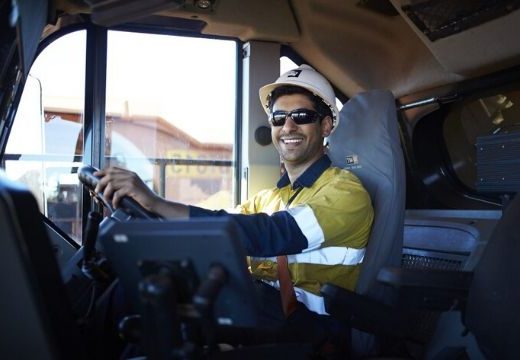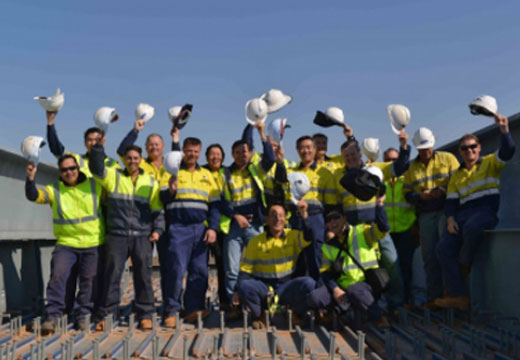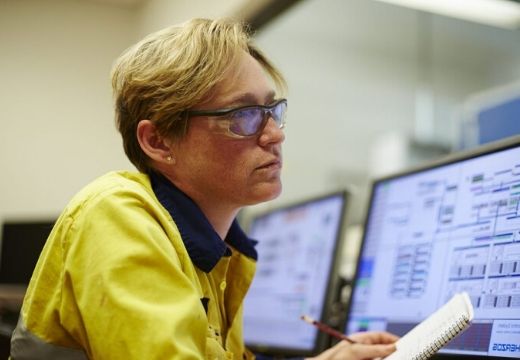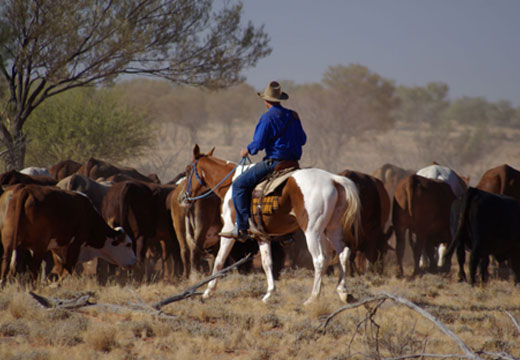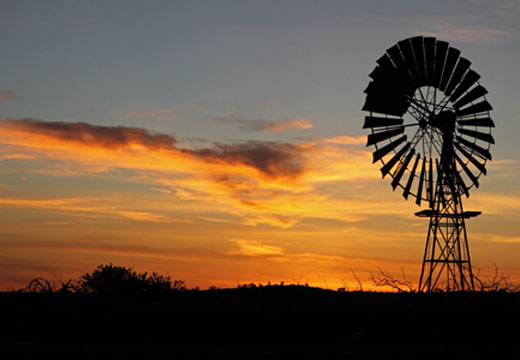Farsighted government leaders see the opportunity for more than just billions of dollars’ worth of immediate foreign direct investment. They see the importance of attracting young talent, such as creators, entrepreneurs and artists, who are seeking communities they are inspired by and choose to live in. These are the people who will shape and move the world of tomorrow. They are the ones creating economic and social opportunities. Judging by the amount of excitement, and by the projects currently under early development, the time is right. Autonomous cities are the next big thing. They are the next generation of SEZs, and so much more.
Read moreNews Australians are ready, willing, and able to work – let them!
Currently, only 3 per cent of pensioners work in Australia, compared to 25 per cent in New Zealand. This is not because pensioners in Australia do not want to work. Research has shown that around one in five want to work, but do not, because of unfair tax and red tape barriers.The solution is to follow New Zealand’s approach by removing all red tape on pensioners, students, and veterans. This would mean that these Australians could earn as much income as they would want, without losing their pension payments or welfare benefits. Of course, they would still pay income tax like every other Australian worker. Removing all red-tape and barriers for Australian pensioners, veterans, and students to get back into the workforce, without suffering significant financial penalties, is a simple and effective policy measure that is good for them and good for our nation. More Australians working means higher government revenue through income tax, GST, and payroll tax, which can be reinvested into infrastructure and used to pay down our debt.
Read moreSpecial economic zones as shield
The Philippines has at least 415 special economic zones. These are composed of manufacturing, IT Parks, tourism, agro-industrial and medical jurisdictions that enjoy the benefits and perks similar to other SEZs in other countries. Along with our other economic low-hanging fruits such as tourism, agriculture and export of services, these special zones are magnets of growth and development. They spur economic activities and boost our exports of goods and services. They generate immediate employment and allow our citizens to bring home much-needed support for their families.
Read moreJobs and Skills Summit: Seniors will be able to work extra hours without losing pension entitlements
Prime Minister Anthony Albanese wrapped up the two-day event in Canberra by announcing the anticipated change to the pension — a policy WA billionaire Gina Rinehart campaigned for ahead of the Federal election. Ms Rinehart said the new measure could have gone further, and the paperwork pensioners need to undertake, along with other restrictions would just deter pensioners from working.
Read moreNational Agriculture and Related Industries day | 21 November 2021 | Speech by Gina Rinehart
This year, our fifth annual National Agriculture and Related Industries day, we had planned one of the biggest celebrations ever to mark our appreciation of all those in agriculture, and this important National day. Unfortunately with the uncertainty of COVID restrictions, we had to postpone our event. Please join us in the Whitsundays next National day, November 21 2022. National Agriculture & Related Industries Day is our day to come together and hold celebrations around the country to acknowledge the over three hundred thousand hard working men and women across our essential industry.
Read moreTimely call to arms for Libs to take the tough decisions
The book Australia Tomorrow’s just launched. Please find a few short excerpts below from Mrs Gina Rinehart’s included essay.
“Agriculture, mining, small businesses, investment and defence are the keys to our nation and our future,” Rinehart observes. “We need our government to stop making decisions influenced by the media of the moment and instead act to make the bold decisions our country needs.” Focusing on the need to eliminate red and green tape, Rinehart reveals her Roy Hill iron ore mine was forced to comply with 4000 pieces of regulation before construction could begin – yes, 4000. The mining billionaire also takes a powerful stand in support of our veterans, slamming their treatment at the hands of government, and showing displeasure at the handling of war crimes allegations. “Given all the serious challenges we face as a country, it was shocking for many good Australians to see the Defence Department order our military to divert to holding rainbow teas and to strip 3000 of our most highly trained military personnel of their medals,” Rinehart writes.
How Special Economic Zones are Reshaping the World Economy
SEZs are business parks granted legal autonomy to improve their governance. Companies operating within SEZs enjoy unique tax breaks, streamlined government regulations, special VISA rights and different labor laws. This enables businesses to operate in emerging markets without the usual problems that businesses in the developed world face. SEZs have also rehabilitated traditionally bad investment destinations, creating bastions of economic growth in unlikely locations. The most well-known case studies of this come from China.
Read moreInfrastructure key to regional boom
The report says improving regional connectivity is critical to unlocking additional growth and backs a staged investment in transport infrastructure aimed at supporting economic diversification and sustainable population growth. It says this strengthens the case for modern, fast rail improvements. Mass movements of people from cities to towns such as Margaret River in Western Australia and Orange in NSW – both as holiday destinations and places of residence – had sparked huge demand for housing and services. The report says a more coordinated infrastructure policy would meet specific needs by drawing on each region’s competitive advantage, facilitate growth and encourage a better balancing of population growth between cities and regions.
Read moreTaking the big smoke to the bush
“Not by a decentralisation policy where we shift public servants from government agencies out into country towns. But where we flip that model, identify the unique competitive advantage of the region, and use that to attract people … but also businesses who are keen to relocate if we get the infrastructure piece right.”
Read moreApprovals reform can protect natural assets & boost economy
The Minerals Council of Australia estimates that the EPBC process can cost companies developing greenfield resource projects up to $47 million every month. Professor Samuel recommended the job-destroying duplication should be addressed by improving, strengthening, and streamlining the capacity of the Federal Government to delegate approval functions to State governments.
It’s time to get on with reforms to better protect natural assets and deliver a needed boost for our economy.
